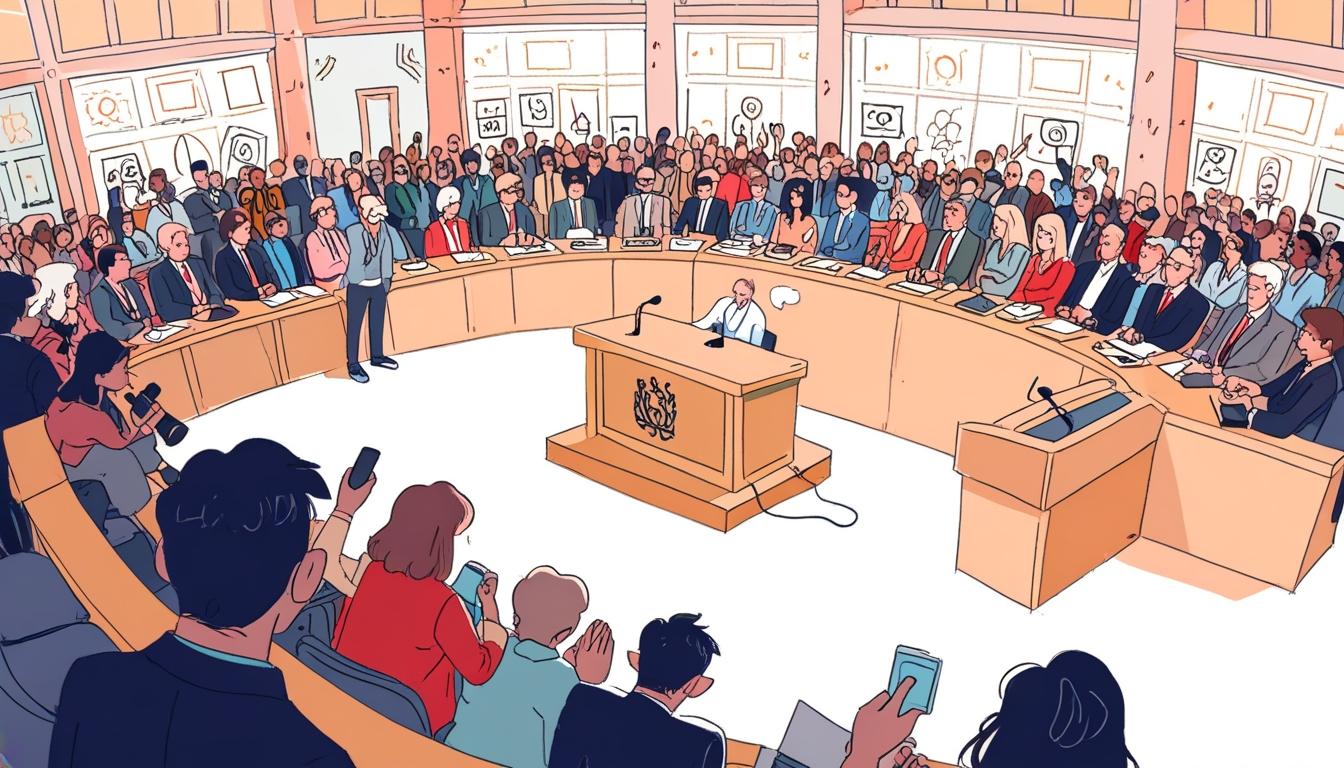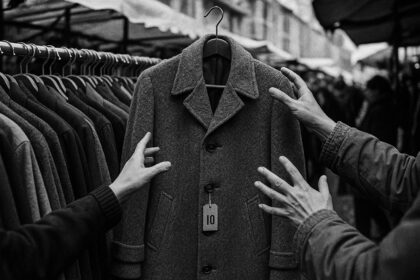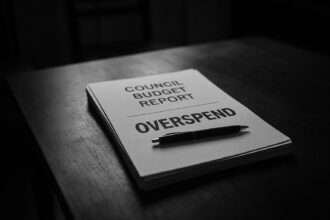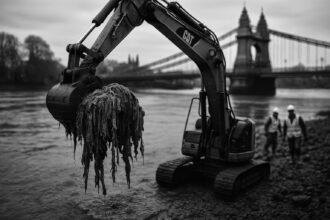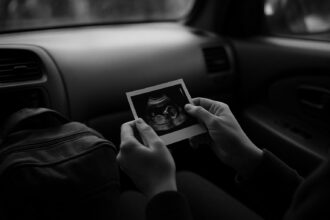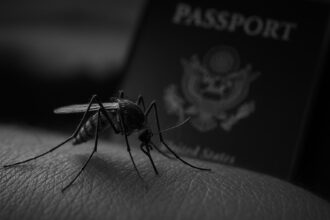As Parliament debates the Data (Use and Access) Bill, creators and unions warn that Labour’s approach could undermine copyright protections, risking economic harm to artists and cultural institutions across the UK.
As the UK Parliament gears up for a monumental vote on artificial intelligence and copyright law, alarm bells are ringing regarding the potential pitfalls for the country’s vital creative industries. With Sir Keir Starmer at the helm of the Labour Party, a fresh wave of scrutiny looms over his strategy concerning the Data (Use and Access) Bill—a bill that threatens to redefine how AI corporations engage with copyrighted material, generally at the expense of individual creators.
The heart of the matter lies in an amendment that passed through the House of Lords, aiming to bolster protections for artists, writers, and other creators against the unauthorized exploitation of their work by AI systems. This initiative has gained traction among those in the arts and media sectors, which argue fervently that robust copyright laws are essential to preserve their livelihoods. A diverse assembly of musicians, photographers, and news outlets has united against government initiatives that allow tech firms to exploit their creative works for AI training, all while ignoring the essential rights of ownership.
The government’s proposed strategy, recently outlined in a consultation, raises eyebrows by suggesting that AI developers could access vast quantities of UK creative content—including music, films, and literature—without providing compensation to creators unless they actively choose to opt out. This approach has been met with strong backlash, notably from Conservative spokesperson Alan Mak, who condemned the Labour government’s handling of AI as a “total mess,” suggesting that effective policymaking could preserve the nation’s rich cultural heritage while fostering innovation.
Echoing these concerns, over 30 leaders from the performing arts sector, including representatives from prominent institutions like the National Theatre and the Royal Shakespeare Company, have voiced their dismay at proposals that seem to trivialise the economic realities faced by artists. They insist that copyright protections are not merely legal safeguards but essential lifelines for many within the creative community, urging the government to respect the moral and economic rights that underpin their work.
UK unions, led by the Trades Union Congress (TUC), are also raising urgent calls to ensure fair compensation for creative professionals when their work is appropriated for AI training. They advocate for transparency in data usage and support an opt-in framework that would safeguard creators from unwarranted commercial exploitation of their work. The unions further assert the necessity of establishing an independent regulator to oversee how AI technology interfaces with creative sectors, highlighting the importance of mitigating risks associated with rapid technological change.
Critics of Labour’s current stance, spanning various commentary platforms, are rightly concerned about the risks of allowing AI to overshadow human creativity. Ignoring the rights of individual creators in favour of lucrative AI interests could lead to a perilous precedent, one that jeopardises the very foundations of the creative industries.
As the Commons prepares to debate the Data Bill, the implications of this vote could resonate far beyond artistic expression, shaping the future of copyright law in a period marked by rapid technological advancement. The urgent calls from the creative community for stronger protections encapsulate a critical juncture for policymakers who must navigate the fine line between innovation and respecting the rights of those propelling the artistic economy.
In this context, Labour’s choice regarding the amendment may have profound ramifications—not only for the party’s reputation among artistic professionals but also for the overall trajectory of Britain’s cultural landscape. With mounting pressure from artists demanding robust legislative frameworks, the onus is on the government to recalibrate its policies to effectively nurture both creativity and innovation within the flourishing UK creative sector.
Source: Noah Wire Services
- https://www.dailymail.co.uk/news/article-14709199/Labours-AI-plans-total-mess.html?ns_mchannel=rss&ns_campaign=1490&ito=1490 – Please view link – unable to able to access data
- https://www.theguardian.com/technology/2024/dec/19/uk-arts-and-media-reject-plan-to-let-ai-firms-use-copyrighted-material – A coalition of UK arts and media organizations, including musicians, photographers, and newspapers, has opposed the government’s proposal to allow AI companies to use copyrighted material for training without explicit permission. They argue that existing copyright laws should be enforced to protect creators’ rights and prevent unauthorized use of their work by AI developers. The coalition emphasizes the need for AI developers to seek permission and agree on licenses with rights holders before using their content for AI training.
- https://www.theguardian.com/culture/2025/mar/18/performing-arts-leaders-issue-copyright-warning-over-uk-governments-ai-plans – Over 30 leaders from the UK’s performing arts sector, including heads of major institutions like the National Theatre and the Royal Shakespeare Company, have expressed concerns about the government’s plans to allow AI companies to use artists’ work without permission. They highlight the reliance of creative workers on copyright to sustain their livelihoods and urge the government to support the moral and economic rights of the creative community in music, dance, drama, and opera.
- https://www.theguardian.com/technology/2025/mar/03/uk-unions-creative-industry-workers-artificial-intelligence-ai-copyright – UK unions, including the TUC, have called for action to protect creative industry workers amid the development of artificial intelligence. They advocate for transparency in AI training data, an opt-in system to protect creative work from commercial data mining, and measures to ensure fair compensation for creative workers when their work is used to train AI models. The unions emphasize the need for an independent regulator to oversee the integration of AI into society and work, including the creative sector.
- https://www.theguardian.com/commentisfree/2025/jan/15/artificial-intelligence-ai-labour-creative-industries – Ed Newton-Rex critiques the Labour Party’s AI plan, which proposes reforming copyright law to favor AI companies. He argues that this approach could lead to the exploitation of creators’ work without compensation, potentially displacing human creativity with AI-generated content. Newton-Rex emphasizes the need for policies that protect creators’ rights and ensure fair compensation when their work is used to train AI models.
- https://www.tuc.org.uk/research-analysis/reports/artificial-intelligence-creative-workers – The TUC manifesto outlines proposals to address the impact of artificial intelligence on creative workers. It advocates for transparency in AI training data, an opt-in system to protect creative work from commercial data mining, fair compensation for creative workers when their work is used to train AI models, and the establishment of an independent regulator to oversee the integration of AI into society and work, including the creative sector.
- https://www.gov.uk/government/news/uk-consults-on-proposals-to-give-creative-industries-and-ai-developers-clarity-over-copyright-laws – The UK government has launched a consultation on plans to provide clarity to creative industries and AI developers regarding the use of copyrighted material for training AI models. The proposals aim to balance the interests of both sectors by ensuring protection and payment for rights holders while supporting AI developers to innovate responsibly. Key areas include boosting trust and transparency between the sectors and enhancing the ability of creators to control how their material is used by AI developers.
Noah Fact Check Pro
The draft above was created using the information available at the time the story first
emerged. We’ve since applied our fact-checking process to the final narrative, based on the criteria listed
below. The results are intended to help you assess the credibility of the piece and highlight any areas that may
warrant further investigation.
Freshness check
Score:
8
Notes:
The narrative discusses current events regarding the UK Parliament’s vote on AI and copyright law. However, without specific dates or recent updates, it’s somewhat challenging to assess its freshness against online sources.
Quotes check
Score:
5
Notes:
The quote from Conservative spokesperson Alan Mak criticising Labour’s AI handling is noted. However, without further context or original sources for this quote, it’s difficult to verify its authenticity or originality.
Source reliability
Score:
6
Notes:
The narrative originates from the Daily Mail, which is a known publication but varies in reliability depending on the topic. The content includes quotes and opinions from various stakeholders, which adds to its credibility but also introduces potential biases.
Plausability check
Score:
9
Notes:
The claims about Labour’s AI plans and the backlash from the creative industries are plausible given the context of ongoing debates on AI and copyright laws. The narrative aligns with current concerns about the impact of AI on creative rights.
Overall assessment
Verdict (FAIL, OPEN, PASS): OPEN
Confidence (LOW, MEDIUM, HIGH): MEDIUM
Summary:
The narrative discusses timely issues related to AI and copyright law, but lacks specific dates and original sources for quotes. The source is known but varies in reliability, and the claims are largely plausible. Further verification is needed for a definitive assessment.


